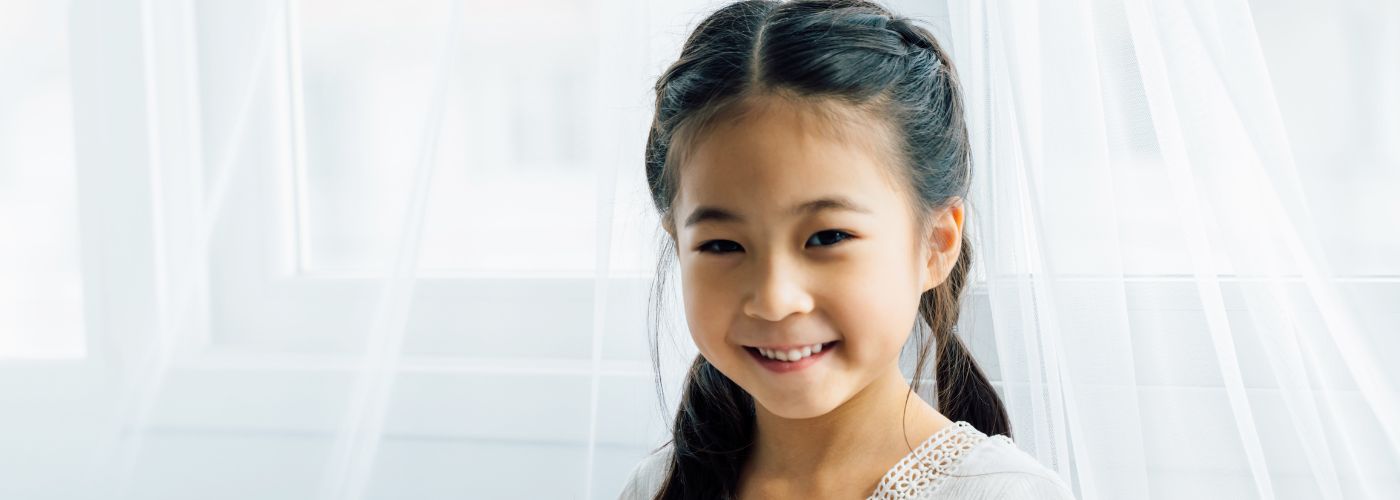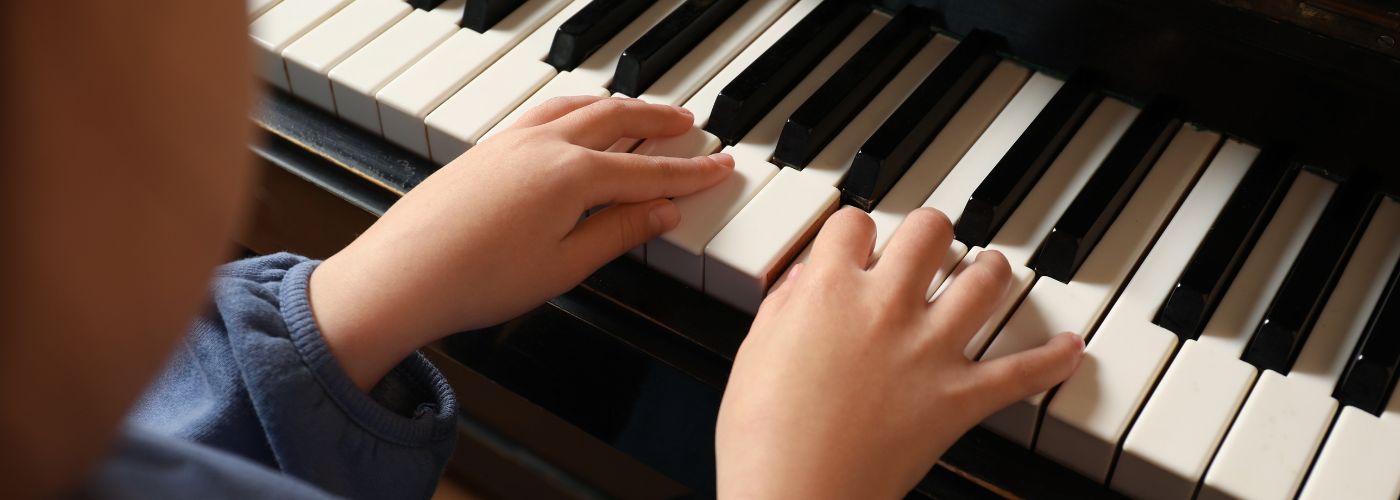Imagine a world where every child had the opportunity to unlock the magical realm of music! The benefits of learning piano for kids extend far beyond simply creating beautiful melodies; it is a transformative journey that nurtures creativity, discipline, and cognitive development.
In today’s fast-paced digital age, where distractions abound and attention spans waver, introducing children to the timeless art of piano playing can be a profound gift with lasting impacts on their overall growth and well-being. We’ll discuss some of the major benefits of how learning piano for kids helps brain development.
Cognitive Benefits of Learning Piano for Kids
Learning to play the piano offers a plethora of cognitive benefits for kids. The intricate coordination required between both hands to play different keys enhances their fine motor skills and hand-eye coordination.
Moreover, reading music notes and translating them into physical movements helps improve their ability to focus and concentrate, crucial skills for academic success.
Playing the piano also stimulates various areas of the brain simultaneously, promoting neural connections that enhance memory retention and problem-solving abilities.
Research has shown that children who learn to play an instrument like the piano tend to perform better in school, as it fosters creativity, boosts self-esteem, and improves overall cognitive development.
Embracing the challenges of learning a complex skill like playing the piano can instill perseverance and discipline in children, shaping their growing mindset.
Emotional Development Through Learning Piano For Kids
Learning to play the piano not only develops musical skills in children but also plays a vital role in their emotional development. Through practicing and performing music, children learn perseverance, discipline, and patience.
These qualities help them build resilience and cope with challenges both in music and other aspects of their lives. Additionally, playing the piano can act as a form of self-expression for children who may find it difficult to communicate their emotions verbally.
Mastering the piano requires a high level of focus and concentration, which can help improve a child’s ability to regulate their emotions. The act of playing music allows children to express a wide range of emotions, from joy and excitement to sadness and reflection.
This emotional outlet can be particularly beneficial for kids who struggle with expressing themselves or managing overwhelming feelings. Overall, learning the piano not only enhances musical abilities but also fosters emotional growth in children.
Enhanced Motor Skills from Playing the Piano for Children
Playing the piano can greatly enhance children’s motor skills in a variety of ways. The intricate finger movements required to play different notes and chords can improve dexterity and coordination.
Additionally, reading sheet music and translating it into physical actions on the keys can sharpen hand-eye coordination. As children practice and improve their piano skills, they are also enhancing their motor skills.
Playing the piano requires a high level of focus and concentration, which can help children develop better attention span and cognitive abilities. A piano teacher can help a student’s musical development through private or group lessons.
By learning to coordinate both hands independently while playing different melodies or rhythms, children are exercising their brain in a unique way that can result in improved problem-solving skills and multitasking abilities!
Building Better Bonds With Kids Learning Piano
Parents play a crucial role in building better bonds with kids learning piano by creating a supportive and encouraging environment. By showing genuine interest in their child’s progress and celebrating small achievements, parents can boost their child’s confidence and motivation to practice regularly.
Additionally, parents can enhance the bond by actively participating in their child’s piano journey, whether it be attending recitals, practicing duets together, or simply listening attentively during practice sessions.
Another effective way for parents to strengthen their connection with their kids learning piano is by incorporating music into other aspects of daily life. This could involve playing music games as a family, sharing favorite songs or artists, or even attending concerts together!
Social Advantages of Kids Learning Piano
Learning to play the piano at a young age can provide numerous social advantages for children, just as much as learning piano as an adult.
One key benefit is the opportunity for increased self-confidence and self-esteem. As children master new pieces and perform in front of others, they gain a sense of accomplishment that can boost their confidence levels.
Additionally, learning to play an instrument like the piano encourages discipline and perseverance, as it requires regular practice and dedication to improve.
Moreover, playing the piano can also foster strong social connections for children. By participating in group piano lessons or ensemble performances, kids have the chance to interact with peers who share similar interests.
This can lead to new friendships and a sense of belonging within a community of fellow musicians. Furthermore, music is often seen as a universal language that can help children communicate and connect with others on a deeper level!
Boosting Confidence and Discipline With Piano Practice
One of the most powerful ways to boost a child’s confidence and discipline is through regular piano practice or piano improvisation.
The act of practicing the piano requires dedication, focus, and patience, all of which are important qualities for building self-esteem and resilience in children.
As they gradually improve their skills and see the results of their hard work, children begin to feel more confident in their abilities and develop a sense of accomplishment that can translate to other areas of their lives.
Moreover, learning to play the piano teaches children the importance of discipline and consistency. Children learn about the value of hard work and perseverance by setting aside time each day to practice.
This structured routine helps instill good habits that can benefit them in school, sports, or any other pursuits they may have!
Boosting Creativity and Musical Expression With Kids Piano Practice
One effective way to enhance creativity and musical expression through kid’s piano practice is to encourage improvisation. Allowing children to explore different sounds, experiment with melodies, and create their own music can greatly boost their creativity.
By giving them the freedom to express themselves through improvisation, kids can develop a deeper connection with music and build confidence in their abilities.
In addition to improvisation, incorporating games and fun activities into piano practice can make the learning process more engaging for children. For example, you can create rhythm challenges like piano scales that require kids to think creatively while practicing their piano skills.
This interactive approach not only makes practicing more enjoyable but also helps children develop a sense of playfulness and exploration in their music-making.



Continue Reading
Creative Ways to Encourage Practice at Home for Young Musicians
Have you ever watched a child lose interest in their instrument after just a few
Jul
Top Breath Control Exercises For Singers
Have you ever noticed how some singers seem to effortlessly hold long notes while others
Jun
How Does The Suzuki Piano Method Work?
Have you ever wondered why some children seem to pick up music so effortlessly? The
May